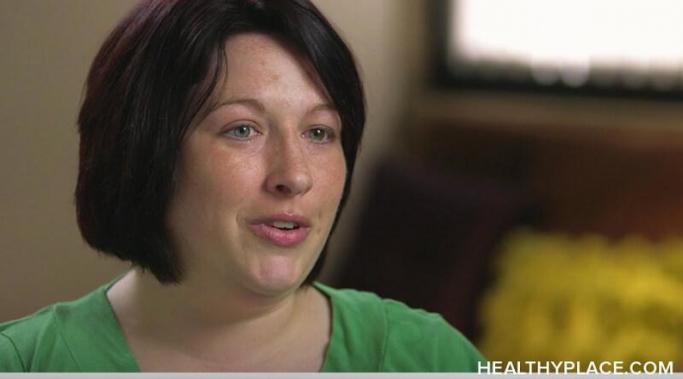Blogs
Recently I read a great article on the use of brand names when referring to drugs. The author, a doctor, decries the practice and says doctors should use the name of the drug rather than the brand name. The brand name of the drug, after all, was chosen by a marketer and a focus group and is really just advertising for the drug.
The only trouble is, patients don't know, or can't remember, the actual names for drugs.
Even after all this talking, and doing, fixing, and mulling-over, and redoing, I still find that I go through stages of really, really disliking dealing with myself, all this: the anxiety.
I worry about the things that maybe I can't fix.
That's potentially the hardest thing to face about the words which preface my diagnosis; It isn't PTSD. It's 'chronic, severe' PTSD.
So you see, there's really no getting out of it. I can't say, "well, I only have a little post traumatic stress," or "Anxiety only gets this bit of my life!". It gets rather a lot, actually. And people with anxiety disorders don't get nearly enough say about it. Not. nearly. enough.
If I've learned one thing over the past two years, it is that our society is ill-equipped to deal with emotional and verbal abuse, and more than 75% of the time, we do not recognize it when it happens to us. And if we do know it is happening, we're reluctant to label it as abuse. Instead, we seek to "understand" and "forgive" or "toughen up and deal with it" believing our minds and hearts should be able to "overcome" somebody's hurtful words and manipulations.
We think we should be "better men" and "rise above" the verbal violence via passivity and silence (and maybe an apologetic smile if the abuser lashes out around friends, family, or the strangers in the canned goods aisle at the grocery store).
I come up against this wall plenty, in treating anxiety: Combating the sense of hopelessness, of powerlessness, that only too often accompanies the worst symptoms of anxiety disorders.
How do I not get stuck when simply feeling things seems way above my pay grade?
"If you know neither yourself nor your enemy,
you will always endanger yourself."
-The Art of War
Ten years ago, if you'd asked me where I thought I might be in 2011, the last thing I'd have said is "I plan to be a writer." Yet, here I am: blogging for HealthyPlace.com, and about to be a published author. When I go to Amazon.com and search for my book (which, I must admit, I do at least 5 times a week, just to make sure it's not a dream), I'm still amazed to find myself with an "author's page" and a biography on Wikipedia.
Oh, I'd hoped to be a "wiki girl", but I'd thought it might be because of my work as an actress, radio personality, voice talent or singer. Life is funny that way. You make your plans, and sometimes you follow them. Sometimes, too, the universe sends you elsewhere, like a stream cutting through the forest. It goes where it needs to go.
I could get technical and discuss what clinicians, researchers, doctors, and advocates believe. I could also separate the physiological from the behavioral. I think the path from substance abuse to substance addiction is complex and the best way to discuss this is to share part of my story.
Today, I sit and wonder how it all got to be this way, how did I end up with this long-lasting battle with depression? Often, it does us little good to think too hard on the how and why, rather it serves us better to focus on "what do I do now?" It feels impossible not to ponder the rest of the story at times. It can creep into our lives or it can launch a sneak attack; no matter how it strikes it can be really confusing and difficult to determine the cause of depression.
cont. from Allergies and Psychiatric Illness (part 1)
Actually, I don't wonder about a possible link between inhalant (i.e., "seasonal" or "nasal") allergies and psychiatric diagnosis--I know such a link exists; there is clinical evidence to support it. What I wonder about is the mechanism of the link; how the link could be used to treat psychiatric illness in children (and adults); whether the link can explain some of Bob's difficulties.
Some people who find themselves dealing with a mental illness or the illness of a loved one eventually come to a point where they want to pitch in and help the mental health community. Mental health advocacy can feel like a natural progression to some and to others it is surprising or unexpected. No matter how it comes about, it is always remarkable when a person utilizes their challenges in life, like mental illness, to do good in the world. Our guest, Shannon Flynn, does just that as a mental health advocate.
Yesterday, I sought medical treatment after suffering some severe dizziness. After some tests, the doctor told me that the dizzy spells and difficulty walking were a result of a medication-related drop in blood pressure. The problem--the psychiatric medication responsible allows me to sleep without nightmares. It was my decision--psych symptoms or physical problem.
"The Fat and Happy Paradox?" I asked.
"Exactly," he replied.








